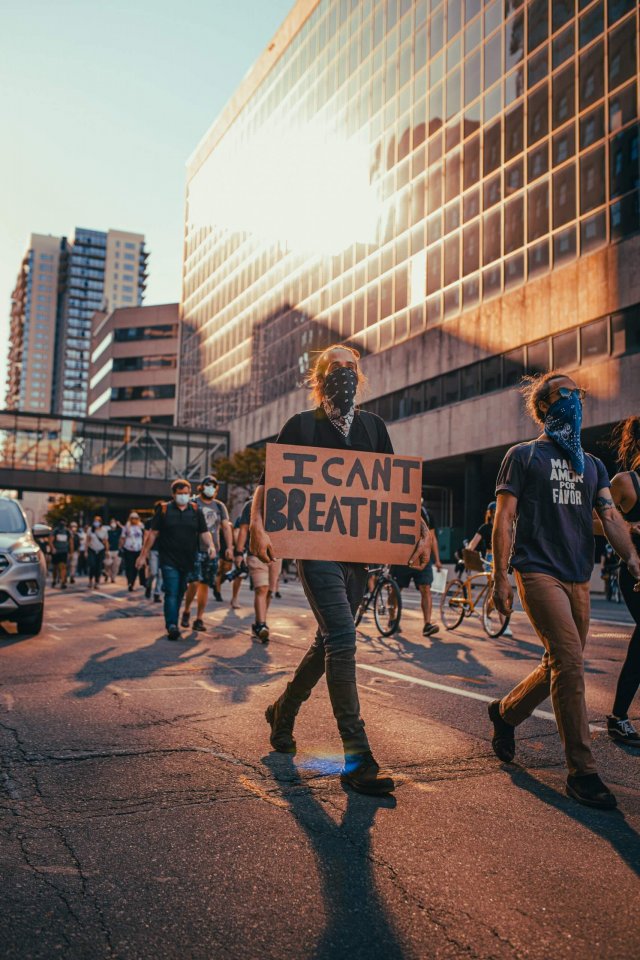Renewed calls to recognize racism in Canada were again raised after some top politicians asserted recently that it doesn’t exist.
Race relations activists and observers interviewed by New Canadian Media say it is time to take off the masks that prevent people from acknowledging that systemic racism exists and police brutality happens.
Ontario Premier Doug Ford and Quebec Premier François Legault have both recently said in separate press events that racism in Canada is not as serious as what has been happening in the U.S.
Ford said Canada doesn’t have the same “systemic, deep roots” of racism as in the U.S. Later, in response to a question from Andrea Horwath, leader of the Ontario NDP, he retracted.
Ford and Legault spoke in the midst of protests that were happening the U.S. after Minneapolis, Minn. police officers were accused of allegedly killing African-American George Floyd while in custody.
Stockwell Day, a former Conservative MP and president of the Treasury Board, similarly commented about the absence of systemic racism in CBC News Network’s Power & Politics talk show. Day later apologized and resigned from CBC and other companies where he’s affiliated.
By feedback from many in the Black and other communities I realize my comments in debate on Power and Politics were insensitive and hurtful.I ask forgiveness for wrongly equating my experiences to theirs.I commit to them my unending efforts to fight racism in all its forms.
— (((Stockwell Day))) (@Stockwell_Day) June 3, 2020
Legault is standing firm on his view but reportedly plans to announce actions to stem racism. He was cautious though in using the word “systemic.”
“White people in Canada live in a bubble and don’t understand racism,” said Annette Henry, a professor at the Faculty of Education at the University of British Columbia (UBC).
“It’s systemic, and they [white people with power and privilege] are part of it. They should ask themselves, ‘Who’s in government, and Who’s missing? Who’s on the board of universities and corporations?’”
Multiculturalism in Canada
Henry is a U.K.-born Canadian of Jamaican descent, and has lived in the U.K., U.S. and Canada. She said that while racism does not manifest itself in Canada like the “blatant segregation” in the U.S., it is definitely here — both systemic as well as interpersonal — and that white privilege is a fact of life.
“In Canada, we think we live in a land of happy, multicultural harmony,” she said. “But look at who has less access to healthcare, education and jobs. We don’t even collect data to keep track of this kind of systemic racism. I have asked for race-based statistics for my own educational research, and have been given excuses for the lack of such data.”

Henry cited some of her personal encounters with racism, including being followed and stopped by police for no reason while she was driving through the campus of UBC.
Marie-Livia Beaugé, a criminal lawyer of Haitian origin based in Montreal, Que., co-ordinates the Hoodstock project aimed at addressing systemic racism that has left Black Canadians and asylum seekers from Haiti particularly vulnerable to COVID-19.
“If the Quebec premier wants to be in denial, he should take a look at the inequalities that make life in Montreal North particularly difficult,” said Beaugé
Last month, it was reported there were 1,791 COVID-19 cases in this neighbourhood of Montreal – nearly 10 per cent of the city’s total.
The borough of Montreal North is home to a large number of temporary foreign workers and asylum seekers from Haiti and other countries, many employed in senior care homes, and on the front lines of pandemic risk exposure.
Beaugé’s organization distributes hand sanitizer, masks and other protective equipment to frontline workers.
“The lack of public transport and other public services in Montreal North is another example of systemic racism,” she said.
Rooted in History
Faisal Kutty is a lawyer, adjunct professor at Toronto’s Osgoode Law School, and a human rights activist of South Asian background.
“Having lived in both [U.S. and Canada] for the past 10 years and practised law in Canada for years, this [claim of absence of systemic racism] is patently false,” he told NCM.
“Canada was actually built on racism and racism continues unabated. The only real difference between the U.S. and Canada is that in Canada we deny it exists, cover it up, do it with a polite demeanour and a smile.”
“In the U.S., you at least know the racists. They don’t usually hide it well,” he added.
Rosemary Sadlier, former president of the Ontario Black History Society, agreed that “racism in this country Is systemic because it was founded on slavery and the displacement of First Nations.”
Rachel Décoste, a writer, educator and anti-racism activist from Ottawa, Ont. said it is high time for the myth of Canadian egalitarianism to be debunked and that there is the harmful consequence of asking whether there’s racism in Canada.
“It moves us even further away from examining pathways towards solutions. The debate is stuck at ‘does it exist or not?’ It should be: ‘it exists and which policy can mediate it best?’” she said.
“It keeps us stuck in a rut and prevents us from moving forward towards solutions,” she added.
“We need to acknowledge racism and deal with it honestly,” said Don Dransfield, former municipal candidate in Ottawa. “Much like overcoming addiction, the first step in overcoming racism is accepting you have a problem.”
Ottawa-based writer/journalist, editor, blogger, communications professional seeking freelance opportunities in political and travel writing.





